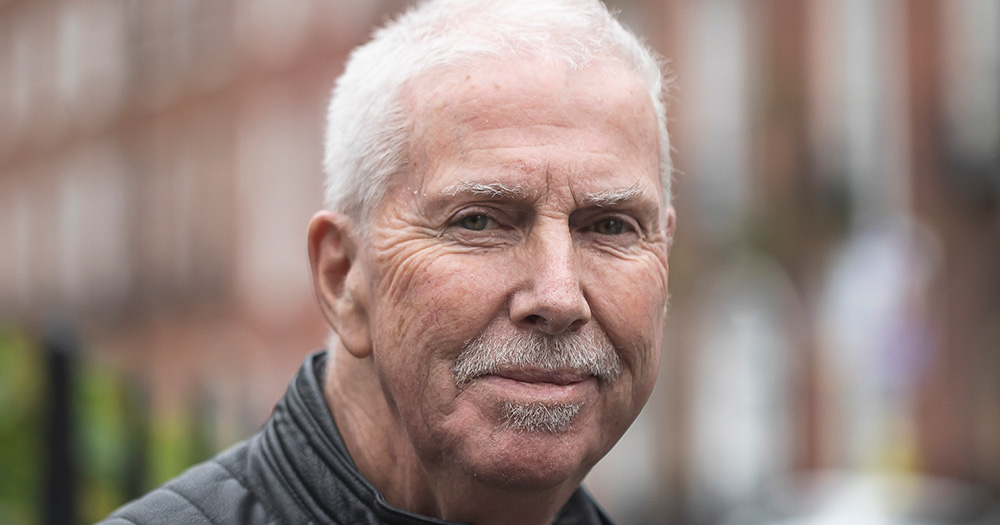Clem Clancy, co-founder of the Irish Gay Rights Movement (IGRM), died on Thursday, February 6, following a short illness with prostate cancer.
From 1974 to 1984, Clem occupied a central role in IGRM and much later led the development of a queer leather and kink club scene in Dublin. Last summer, IGRM marked its 50th anniversary as Ireland’s oldest LGBTQ+ civil rights organisation.
Not unlike many of his peers, Clem’s activism was seeded by membership of the Sexual Liberation Movement, a pansexual advocacy group established in Trinity College in late 1973.
1974 is considered a significant foundational year for Irish queers. Ireland’s first symposium on homosexuality drew hundreds to TCD, followed by the first public protest on ‘Irish Gay Pride Day’, June 27. A week later, IGRM was established and in quick succession took a lease on a public office and founded the country’s first LGBTQ+ counselling and befriending service, Tel-A-Friend.
In his late 20s at this point and with considerable managerial skills from working with Quinnsworth (a network of supermarkets later acquired by Tesco), Clem was a natural fit for the treasurer’s role at IGRM and would oversee the acquisition of 46 Parnell Square in the Winter of 1975. The four-storey building was Ireland’s first attempt at an LGBTQ+ community space.
Forced to leave the space in 1978, Clem and his colleagues at IGRM later acquired a warehouse just off Dublin’s north inner city quays, from where the Phoenix Club operated until the mid-’80s.
Throughout his tenure at IGRM, Clem was one of an incredibly small group of out, proud queers prepared to be visible in the print and broadcast media; a group that also travelled the length and breadth of the country advocating for gay rights and encouraging local development in Cork, Limerick and Galway at a time when there was nothing approaching a queer social scene or political infrastructure in any of our large urban centres.
Throughout the ’90s and into Noughties, Clem was involved in the leather and fetish scene. By this stage, he and his longstanding partner, Frank Moore, had also established a base in Sitges, Spain, and it was here they were married in 2010.
Following the IGRM 50th celebrations, Clem arranged for the transfer of his personal papers and some organisational records of IGRM to the National Library of Ireland.
Clem Clancy is survived by his husband, Frank, and a wide circle of friends in Ireland and abroad who will miss him dearly. Rest in power.
© 2025 GCN (Gay Community News). All rights reserved.
Support GCN
GCN is a free, vital resource for Ireland’s LGBTQ+ community since 1988.
GCN is a trading name of National LGBT Federation CLG, a registered charity - Charity Number: 20034580.
GCN relies on the generous support of the community and allies to sustain the crucial work that we do. Producing GCN is costly, and, in an industry which has been hugely impacted by rising costs, we need your support to help sustain and grow this vital resource.
Supporting GCN for as little as €1.99 per month will help us continue our work as Ireland’s free, independent LGBTQ+ media.
